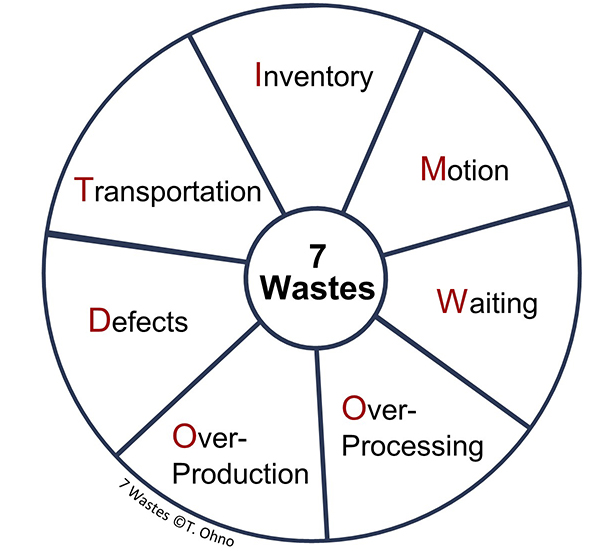Lean
The definition of Lean as in, lean process, lean manufacturing or lean office, is the fervent elimination of waste* where waste is anything that does not add value.
Ask yourself if an all-knowing customer would be willing to pay for every part of the product or service and every process step it takes to deliver same. Anything that is not perceived to be valuable enough to pay for, is likely waste. A longer definition describes major elements:
Lean is a leadership approach, a management philosophy and a set of tactical methods that, as a complete system, creates and sustains:
- Decreasing waste, cost and cycle time
- Increasing capacity potential
- Increasing quality
- Low absenteeism / voluntary turnover
- Extensive measurement of key processes
- High levels of worker involvement, ownership and commitment
This definition goes beyond tactical methods and techniques normally associated with Lean, including: Just-In-Time, Quick Change Over, Error Proofing and 20-Keys.
Taichi Ohno developed the early definitions while at Toyota in the 1950s. It is often referred to as the Toyota Production System (TPS). In the years since Lean was first developed within the realm of discrete manufacturing, it has expended to all industries and processes, including business process.

Ohno’s waste wheel shows the 7 types of basic wastes inside a manufacturing environment.
*This was Taichi Ohno’s most basic definition as described in his book Workplace Management.
« Back to Glossary Index